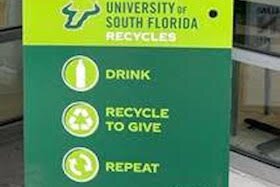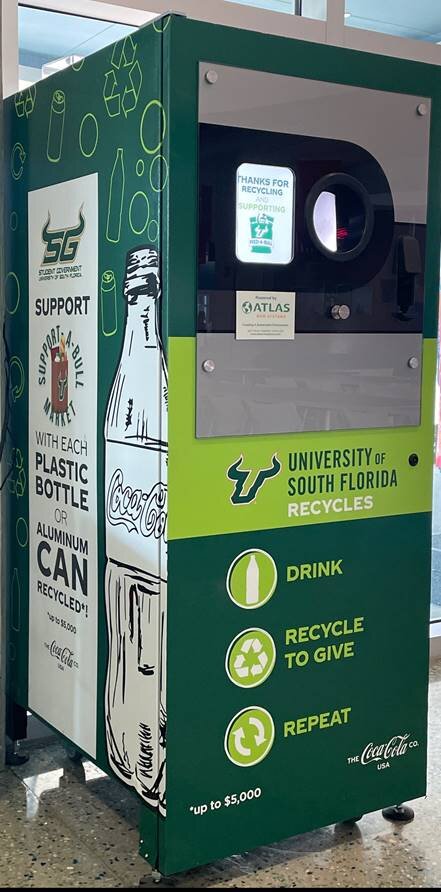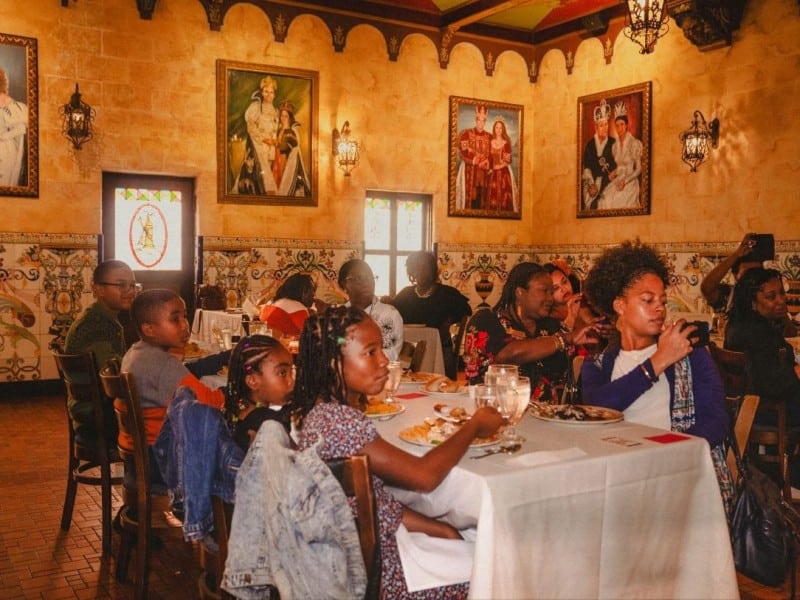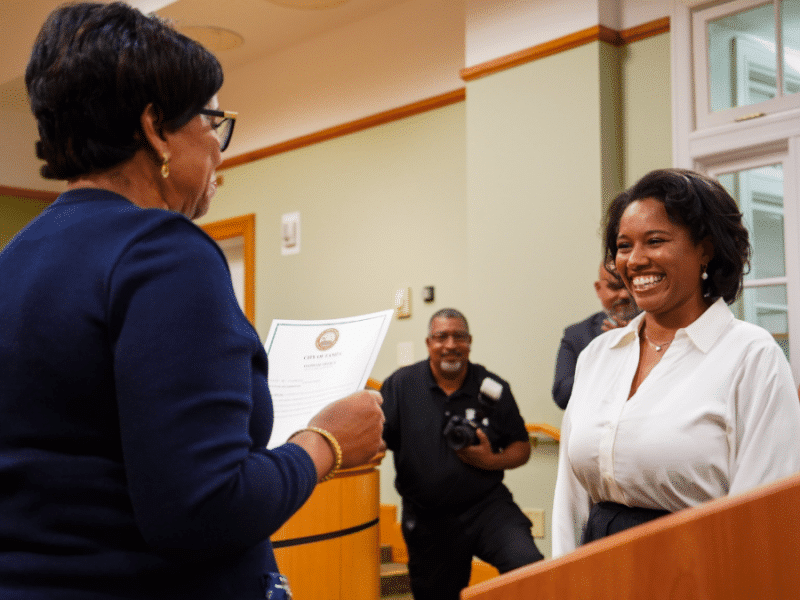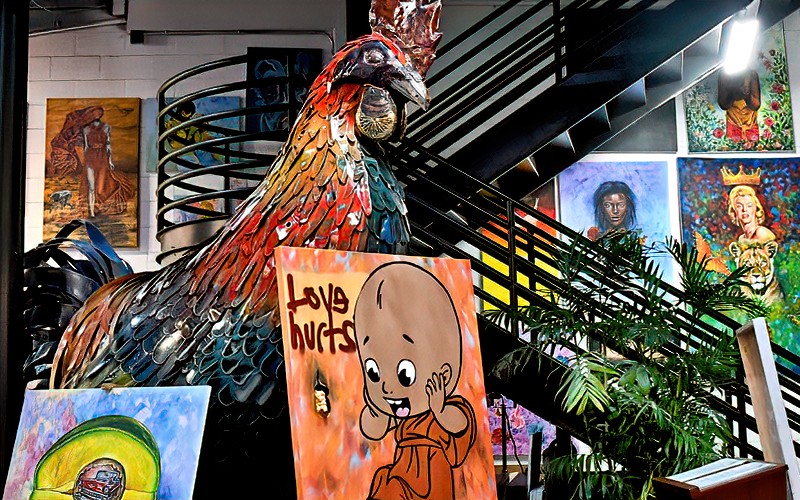Coca-Cola, Florida universities recycle for good
The University of South Florida’s new Reverse Vending Machines help the environment and students in need.
The effort is fairly minimal but the benefits are exceedingly maximal for not only the environment, but for the students using them.
Now set up in various locations across the University of South Florida’s Tampa and St. Petersburg campuses are six Reverse Vending Machines (RVM). Funded by the Coca-Cola Company and Coca-Cola Florida bottling company, the machines look like regular soda vending machines but instead of accepting money, they take in plastic bottles and aluminum cans for recycling.
As part of Coca-Cola’s “World Without Waste” environmental stewardship campaign, the RVMs are part of the company’s effort to collect and recycle every bottle or can sold by 2030.
At USF, the RVMs are located in some of USF’s most visible buildings. On the Tampa campus, they are located outside the vending alcove of Cooper Hall, at the main entrance of The Hub, and on the first floors of Juniper Hall and the Marshall Student Center. In St. Petersburg, they are in the lobby of the University Student Center and at the Bayboro/Davis Breezeway.
USF Auxiliary Services Director Nancy Santiago says for every item deposited into an RVM, Coke donates five cents to a “charity of choice.”
At USF Tampa, that charity is the university’s Feed-A-Bull Food Pantry. That confidential service on the Tampa campus is a free food pantry available to enrolled students providing supplemental food to students in need and education and resources to students related to buying and fixing meals on a budget.
On the St. Petersburg campus, Coca-Cola RVM contributions go the Support-A-Bull Market campus resource pantry.
Through the RVM program, Coca-Cola will donate up to $5,000 per year to Feed-A-Bull and Support-A-Bull Market, selected through a USF Student Government Association vote as the charities to fund.
“I think this will provide a positive impact to combat food insecurity for our USF community,” Student Body VP Jillian Wilson says in a written statement.
Santiago, in her fourth year at USF, says that although the RVMs are supplied and managed by Coke, they will take empty cans and bottles from any brand and aren’t required to be cleaned before depositing them. The machines will reject items not suitable for RVM recycling, such as glass bottles.
From the machines, whatever has been accepted is crushed, sorted and collected by Atlas, a Coca-Cola subcontractor, which then makes the material available to reuse.
Santiago says USF got involved with the RVMs while renewing its contract with Coke for vending rights. The company offered new machines for the campuses as part of its sustainability effort.
“The goal is to build momentum for recycling on campus and right now to get students to recycle their items,” she says. “It is to ultimately reduce waste and if we can increase the visibility of those efforts on campus, we can potentially grow the program even further by expanding the number of machines on campus and even do some student (recycling) competitions.”
Santiago says the maximum capacity for each machine is approximately 900 crushed containers. The machines’ performances are monitored monthly to make ensure they reach the maximum donation amount for the pantries.
“They’re (RVMs) very convenient and they’re in high-traffic locations to recycle products. We have the mechanism to recycle their items and not have to go out of their way to use the machines,” she says. “It’s also helping the food pantry get extra funding so it’s helping in many ways.”
In the future, Santiago says USF and Coca-Cola are hoping to add card readers as a way to implement student recycling competitions as additional incentives to recycle and use the machines.
Besides USF, Santiago says there are two RVMs at the University of Central Florida, Orlando, and one at the University of Miami.

